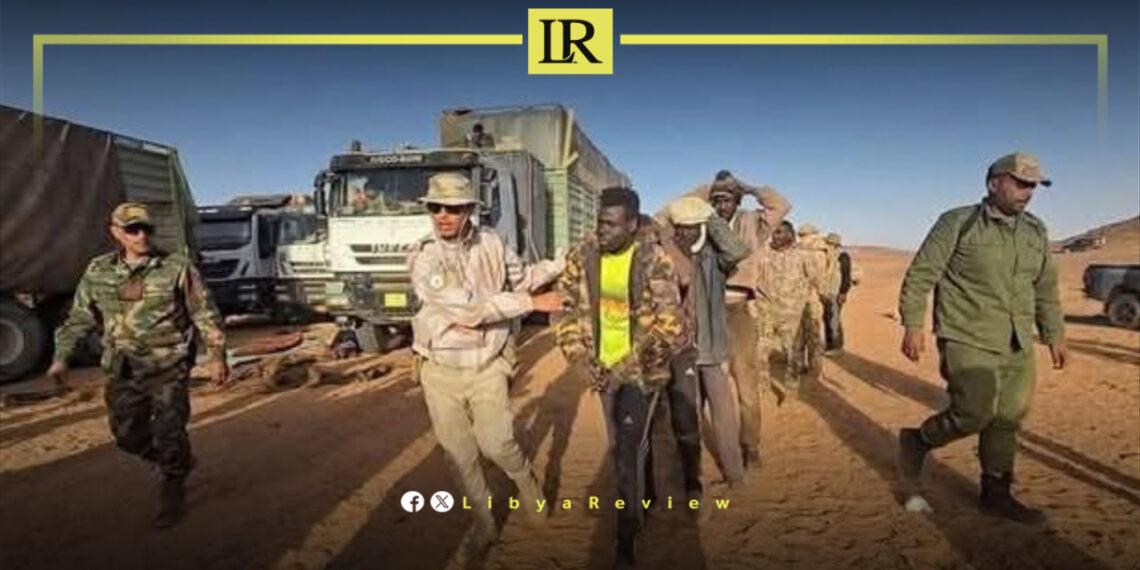On Thursday, the Libyan National Army (LNA) intensified efforts to combat fuel smuggling in the south. Military units carried out desert patrols under the command of Lieutenant General Saddam Haftar, Chief of Staff of the LNA Ground Forces.
During the operation, troops intercepted five trucks in the Samnu-Tamenhint area. The vehicles, driven by foreign nationals from African countries, were being used to smuggle fuel and food into Chad and Niger.
The Libyan military has vowed to strengthen security and stop the illegal trade of essential goods. Authorities say smuggling threatens the country’s economy and deprives citizens of vital resources. The army remains committed to tracking down smuggling networks and securing Libya’s borders.
Fuel smuggling has become a major issue in Libya’s southern region, where vast desert terrain makes it difficult to control illegal trade. Criminal groups exploit weak border security, moving fuel, food, and other goods across international borders for profit. The military has increased its presence in key smuggling routes to disrupt these activities.
Libya has struggled with smuggling for years. The country, home to Africa’s largest oil reserves, heavily subsidizes fuel, making it one of the cheapest in the world. This has made fuel smuggling a lucrative business, with traffickers selling it at much higher prices in neighboring countries.
Smuggling is not just limited to fuel. Food, medicine, and weapons are also trafficked through Libya’s porous borders. The situation worsened after the 2011 uprising, which led to political instability and the weakening of state institutions. Armed groups and criminal networks took advantage of the chaos, expanding their illegal activities.
The southern region, with its remote and sparsely populated areas, has become a hotspot for smuggling. The lack of a strong state presence has allowed traffickers to operate freely. Many smuggling routes extend beyond Chad and Niger, reaching Sudan, Algeria, and Tunisia.
The Libyan government, along with international partners, has been working to tighten border controls and crack down on smuggling networks. However, the problem remains widespread due to corruption, weak law enforcement, and ongoing political divisions.
The Libyan Army’s latest operation is part of a broader effort to restore security, protect national resources, and combat organized crime. Authorities warn that without stronger enforcement and cooperation from neighboring countries, smuggling will continue to drain Libya’s economy.


